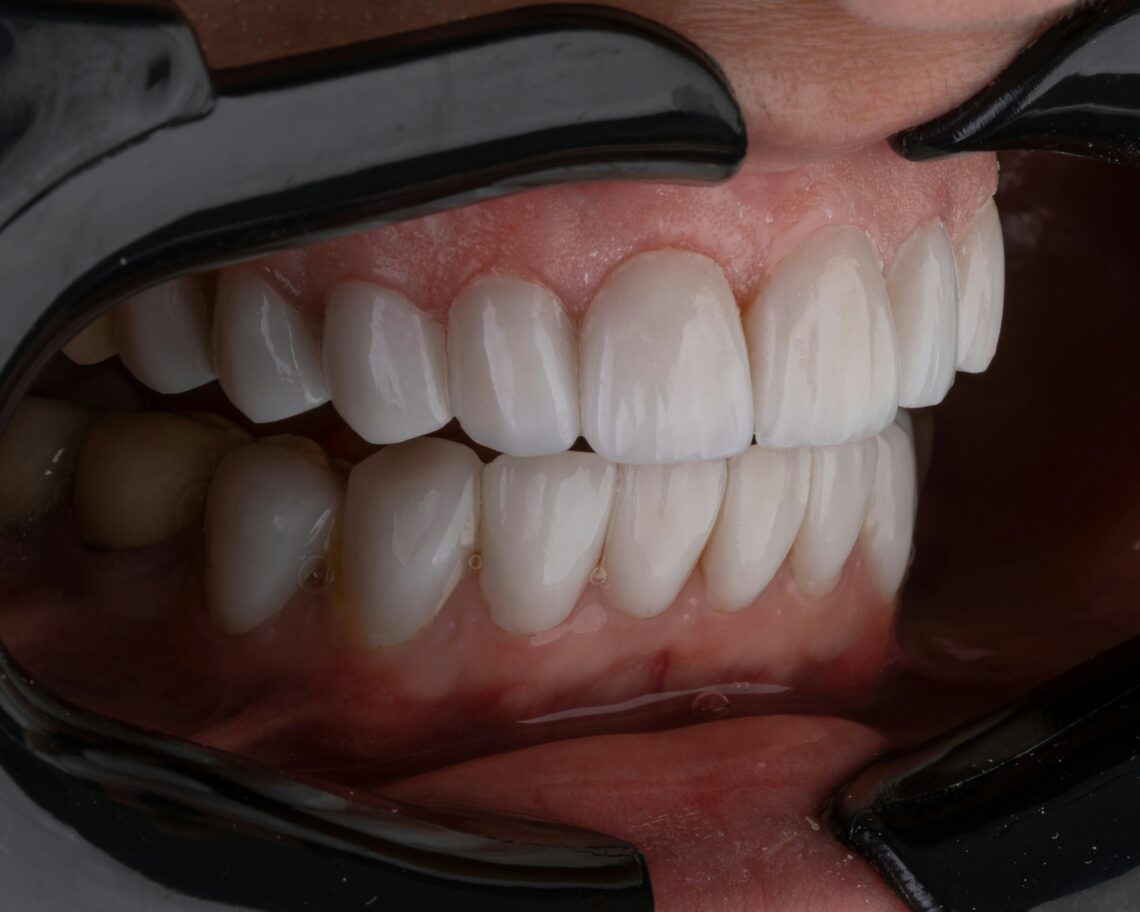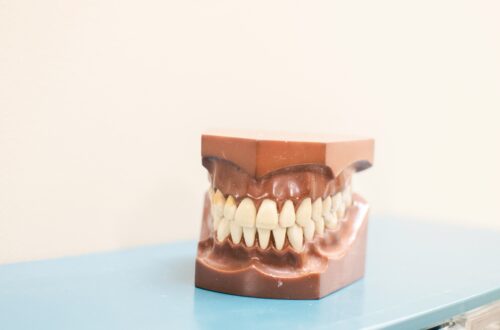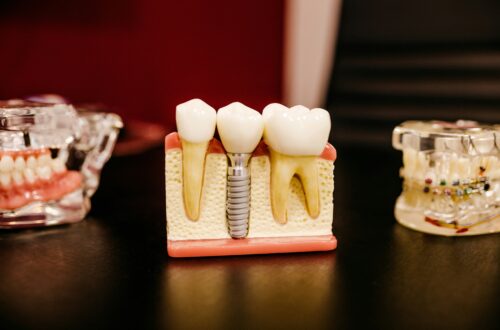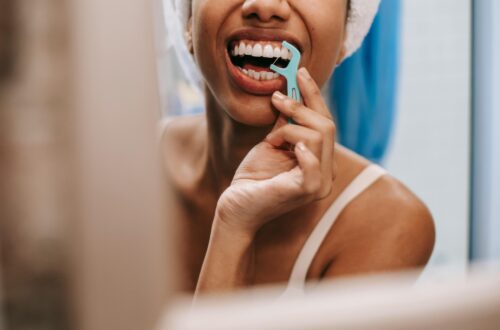Affiliate Disclaimer:
Some of the links on this website are affiliate links, which means that if you click on a link and make a purchase, we may earn a commission at no extra cost to you. This helps support the website and allows us to continue creating content. We only recommend products or services we personally use or genuinely believe will add value to our readers.
You really need to know how to stop gum bleeding immediately (as a home remedy, preferably?)
Gum bleeding can be a real pain, both literally and figuratively. I’ve dealt with this issue more times than I care to count, and it’s always a bit unsettling to see that pink tinge when you spit out your toothpaste.
But don’t worry!
After years of trial and error, I’ve compiled a list of home remedies that actually work to stop gum bleeding. After a lot of experimenting, I’ve found a handful of remedies that genuinely help.
Salt Water Rinse
This old favorite works wonders—it’s quick, effective, and uses ingredients you already have at home. To try it:
Dissolve about half a teaspoon of salt in a cup of warm water.
Gently swish the mixture in your mouth for 30 seconds.
Spit it out, then follow with a rinse of plain water.
Salt naturally disinfects and soothes irritation, helping to calm inflamed gums. Think of it as a simple, refreshing treatment for your mouth.
I find that doing this twice a day when my gums are acting up really helps speed up the healing process.
But why does this work so well? Salt has osmotic properties, which means it draws out excess fluid from inflamed tissues.
This helps reduce swelling and creates an environment that’s less hospitable to bacteria.
Plus, the warm water is soothing and helps increase blood flow to the area, promoting faster healing.
ProDentim
ProDentim is a modern oral probiotic designed to promote healthier teeth and gums. Instead of focusing on digestion like most probiotics, this supplement is tailored specifically to your mouth.
It works by delivering beneficial bacteria directly into the oral cavity, helping to restore a balanced environment that supports gum health and fresh breath. Alongside these probiotic strains, ProDentim also contains supportive ingredients such as inulin and malic acid, which contribute to its effectiveness.
Using it is simple: dissolve one lozenge slowly in your mouth each day, preferably in the morning. I like to take mine after breakfast, and it has become a smooth addition to my daily routine.
Think of ProDentim as a complement to your normal brushing and flossing—not a replacement. It’s an extra layer of support against issues like gum irritation and bad breath.
When I first tried it, I didn’t expect much, but within a couple of weeks, I noticed my mouth felt fresher and my gums were less irritated. After about a month, the improvements were clear, and I’ve kept it as part of my regular oral care ever since.
Cold Compress
When I first tried this remedy, I was skeptical. But trust me, it works wonders.
Here’s what I do:
Grab an ice pack or a bag of frozen vegetables.
Wrap it in a clean cloth to protect my skin.
Hold it against my cheek near the bleeding gum for about 10-15 minutes.
The cold constricts blood vessels, which helps slow the bleeding. It’s also great for reducing any swelling or discomfort.
I’ve found this method particularly helpful when I’ve accidentally injured my gums while flossing or eating something hard.
The science behind this is pretty straightforward. Cold temperatures cause vasoconstriction, the narrowing of blood vessels.
This slows blood flow to the area, which can help stop bleeding.
It also numbs the area a bit, providing some pain relief if your gums are sore.
Tea Bags
Here’s a fun fact: the tannins in tea aren’t just great for a morning pick-me-up, they’re also fantastic for your gums! I keep a stash of black or green tea bags specifically for this purpose.
Here’s my method:
Steep a tea bag in hot water for a few minutes.
Let it cool down until it’s comfortable to touch.
Gently press the tea bag against the affected area for about 5 minutes.
It’s soothing and effective, plus it gives me an excuse to take a little tea break. The tannins in the tea help constrict blood vessels and reduce inflammation.
They also have astringent properties that can help tighten the tissues in your gums.
Green tea has an added bonus, it contains catechins, which are antioxidants with antimicrobial properties. This means they can help fight off the bacteria that might be causing your gum problems in the first place.
Vitamin C Boost
This remedy is more of a long-term strategy, but it’s crucial for maintaining healthy gums. Vitamin C plays a vital role in collagen production, which is essential for strong, healthy gum tissue.
Here’s how I incorporate more vitamin C into my diet:
Eat plenty of vitamin C-rich foods like oranges, strawberries, bell peppers, and broccoli.
Consider taking a vitamin C supplement if I’m not getting enough from my diet.
I think of it as giving my gums a daily dose of strength training. Over time, I’ve noticed that my gums are less prone to bleeding and seem generally healthier.
Vitamin C also boosts your immune system, which can help your body fight off the bacteria that cause gum disease. Plus, it’s an antioxidant, so it helps protect your gum tissue from damage caused by free radicals.
Hydrogen Peroxide Rinse
Now, this might sound a bit intense, but hear me out. Hydrogen peroxide can be a powerful ally in the fight against gum bleeding.
Here’s how I use it:
Mix equal parts 3% hydrogen peroxide and water.
Swish the solution around in my mouth for about 30 seconds.
Spit it out and rinse thoroughly with plain water.
It’s like sending in a cleaning crew for your mouth. The hydrogen peroxide helps kill bacteria and reduce inflammation.
Just be careful not to swallow any!
Hydrogen peroxide works by releasing oxygen when it comes into contact with catalase, an enzyme found in our bodies. This oxygen release creates a foaming action that helps lift debris and bacteria from your gums.
It also helps oxygenate the area, which can promote healing.
Turmeric Paste
I’ll admit, this remedy can be a bit messy, but it’s incredibly effective. Turmeric has powerful anti-inflammatory and antibacterial properties that can work wonders for bleeding gums.
Here’s my method:
Mix turmeric powder with a bit of water to create a paste.
Apply the paste directly to my gums using a clean finger.
Leave it on for about 5 minutes, then rinse thoroughly.
Just be warned: it might temporarily turn your teeth yellow, but it washes off easily. I usually do this before bed so I don’t have to worry about walking around with a yellow smile.
Turmeric contains a compound called curcumin, which is responsible for most of its health benefits. Curcumin has been shown to have anti-inflammatory effects comparable to some over-the-counter anti-inflammatory drugs, but without the side effects.
Oil Pulling
This ancient Ayurvedic practice has become a regular part of my oral care routine. Here’s how I do it:
Take a tablespoon of coconut oil (you can also use sesame or sunflower oil).
Swish it around in my mouth for about 15-20 minutes.
Spit it out into the trash (not the sink, as it can clog pipes).
Rinse my mouth with warm water and brush my teeth as usual.
I usually do this while I’m getting ready in the morning. It takes some getting used to, but the results are worth it.
My gums feel cleaner and healthier, and it’s even helped with my overall oral hygiene.
Oil pulling works by “pulling” bacteria and toxins from your mouth. The oil traps these harmful substances, which you then spit out.
Coconut oil has the added benefit of containing lauric acid, which has antimicrobial properties.
Aloe Vera Gel
Nature’s soothing balm comes to the rescue once again! I keep an aloe vera plant at home for various purposes, and gum care is definitely one of them.
Here’s how I use it:
Cut open an aloe vera leaf and scoop out the gel.
Apply a small amount of the gel directly to my gums.
Gently massage it in and leave it on for a few minutes before rinsing.
It’s incredibly soothing and helps reduce inflammation. Just make sure you’re using pure aloe vera gel without any added ingredients.
Aloe vera contains compounds that can help reduce inflammation and fight bacteria. It also contains vitamins and minerals that can promote healing.
Some studies have even shown that aloe vera can be as effective as chlorhexidine (a common ingredient in mouthwash) in reducing plaque.
Herbal Mouthwash
I love whipping up my own herbal mouthwash using chamomile or sage. It’s gentler than store-bought mouthwashes and doesn’t contain any harsh chemicals.
Here’s my recipe:
Steep 1 tablespoon of dried chamomile or sage in a cup of hot water for about 10 minutes.
Strain the liquid and let it cool.
Use it as a mouthwash, swishing for about 30 seconds before spitting out.
This homemade mouthwash is soothing and has natural antibacterial properties. Plus, it makes me feel like a bit of a natural health wizard.
Chamomile contains compounds that have anti-inflammatory and mild astringent properties, which can help reduce swelling and tighten gum tissue. Sage, on the other hand, has been used for centuries for its antimicrobial properties and can help fight off the bacteria that cause gum disease.
Gentle Gum Massage
This might sound counterintuitive when your gums are bleeding, but hear me out. A gentle gum massage can actually help promote healing and improve circulation.
Here’s how I do it:
Wash my hands thoroughly.
Using clean fingers, very gently massage my gums in a circular motion.
Do this for about 1-2 minutes, being careful not to apply too much pressure.
This stimulates blood flow and can actually help promote healing. It’s like a mini spa day for your mouth!
Massaging your gums increases blood circulation to the area, which brings more oxygen and nutrients to the gum tissue. This can help speed up healing and strengthen your gums over time.
It also helps stimulate the production of saliva, which has natural antibacterial properties.
Prevention is Key
While these remedies have been lifesavers for me, it’s important to remember that persistent gum bleeding could be a sign of a more serious issue. If you’re experiencing frequent or severe bleeding, it’s crucial to talk to a dentist.
That being said, prevention is always better than cure. Maintaining good oral hygiene habits can go a long way in preventing gum bleeding in the first place.
Here are some tips I’ve found helpful:
Brush gently: Use a soft-bristled toothbrush and don’t brush too aggressively. You’re not scrubbing a dirty pot, your gums are delicate!
Floss regularly: I know, I know, everyone hates flossing. But it’s really important for removing plaque between your teeth and along your gum line.
Use an antiseptic mouthwash: This can help kill bacteria and reduce plaque buildup.
Eat a balanced diet: A diet rich in vitamins and minerals (especially vitamin C) can help keep your gums healthy.
Stay hydrated: Drinking plenty of water helps stimulate saliva production, which naturally cleans your mouth.
Quit smoking: If you smoke, consider quitting. Smoking is a major risk factor for gum disease.
Regular dental check-ups: Visit your dentist regularly for professional cleanings and check-ups.
Implementing these remedies has helped me manage gum bleeding and has given me a deeper appreciation for oral health. It’s amazing how small changes in our daily routine can have such a significant impact on our overall well-being.
Your mouth is the gateway to your body’s health. Taking care of your gums involves maintaining your overall health.
So, the next time you notice a bit of blood when you brush, don’t panic.
Try these remedies, and you’ll be on your way to healthier, happier gums in no time.
People Also Asked
What causes gums to bleed?
Gum bleeding can be caused by various factors including poor oral hygiene, vitamin deficiencies (particularly vitamin C), certain medications, gingivitis, and more serious gum diseases. Sometimes, overly aggressive brushing or flossing can also cause temporary gum bleeding.
How long does it take for bleeding gums to heal?
With proper care and treatment, minor gum bleeding usually stops within a few days to a week. However, if the bleeding continues for more than two weeks, it’s important to ask a dentist as it could show a more serious underlying condition.
Can stress cause bleeding gums?
Yes, stress can contribute to bleeding gums. Stress weakens your immune system, making it harder for your body to fight off the bacteria that cause gum inflammation and bleeding.
Additionally, stress can lead to teeth grinding, which can irritate your gums.
Is it normal for gums to bleed when flossing?
While it’s common for gums to bleed when you first start flossing, it’s not normal. Healthy gums shouldn’t bleed during regular flossing.
If bleeding continues after a week or two of regular flossing, talk to your dentist.
Can certain foods help strengthen gums?
Yes, certain foods can help strengthen your gums. Foods rich in vitamin C (like citrus fruits and bell peppers), vitamin K (like leafy greens), and omega-3 fatty acids (like fatty fish) can all contribute to gum health.
When Should You Replace Your Toothbrush?
Most experts suggest changing your toothbrush every three to four months, or earlier if the bristles start to fray. Using an old or worn-out brush can reduce cleaning effectiveness and may irritate your gums.
Can mouthwash help with bleeding gums?
Antiseptic mouthwashes can help reduce bacteria in your mouth, which can help with gum inflammation and bleeding. However, mouthwash should be used in conjunction with proper brushing and flossing, not as a replacement.
Is oil pulling safe for everyone?
While oil pulling is generally safe, it’s not recommended for children or people with allergies to the oils used. As with any health practice, it’s best to talk to a healthcare professional before starting, especially if you have any existing health conditions.
Can bleeding gums be a sign of pregnancy?
Yes, bleeding gums can be a sign of pregnancy. Due to hormonal changes, many pregnant women experience a condition called pregnancy gingivitis, which can cause gum swelling and bleeding.
How can I tell if my gum bleeding is serious?
If your gums bleed often, easily, or for prolonged periods, it could be a sign of a more serious condition. Other warning signs include persistent bad breath, receding gums, loose teeth, or changes in how your teeth fit together when you bite.
If you experience these symptoms, it’s important to see a dentist.
Key Takeaways
Natural remedies like salt water rinses and cold compresses can provide immediate relief from gum bleeding.
Incorporating vitamin C-rich foods into your diet can help strengthen gum tissue over time.
Alternative practices like oil pulling and herbal mouthwashes can complement traditional oral care routines.
Gentle gum massage can stimulate blood flow and promote healing.
Consistent oral hygiene habits are crucial for preventing gum bleeding and maintaining overall oral health.





